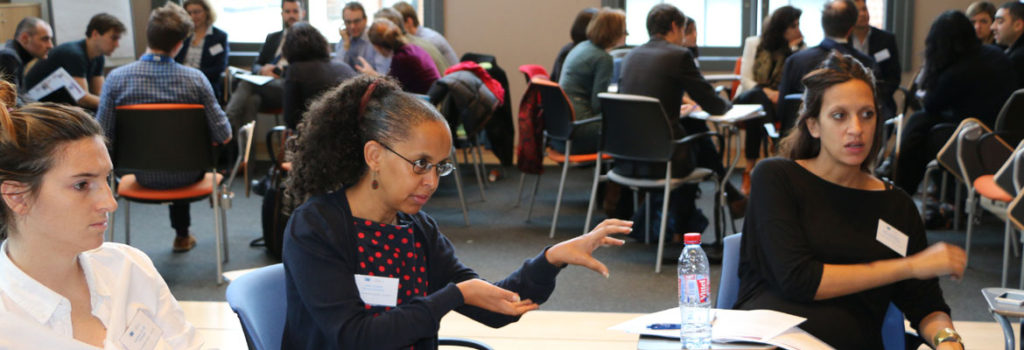By Sue Keogh
How can we use technology to help refugees integrate into the job market? This was the focus of the recent EU Policy Lab workshop on Technology and Refugee Integration, where our CEO Joséphine Goube shared her insights into the work of Techfugees.
Best of the EU Policy Lab expert workshop on Technology and refugee integration, 13 December 2016
Over the past two years, people in the tech community have done an incredible job of trying to offer solutions to the many problems faced by refugees and displaced people. You’ve been fast, reactive and have developed community-led initiatives which have made a massive difference in helping displaced people integrate into new communities.
But there is so much more that can be done to solve the challenges of integration, and the workshop on 13 December 2016 in Brussels was a good opportunity to take stock of the progress we have made and rethink ideas about policies and practices.
Still a relatively new topic for the European Commission, it was a good starting point for a discussion on the ways in which the EU can support social and technological innovation in refugee integration.
It brought together 54 participants – local public authorities, tech entrepreneurs and volunteers, NGOs, researchers, people with refugee experience active in the field, Commission policy makers, and scientists. How can we make the best use of current technologies and what could be done to support and scale-up successful initiatives?
There are a lot of positive factors driving us forward:
- The desire and ability to quickly innovate and experiment with new tools
- High public interest in helping find solutions
- Excitement and energy in a new movement of highly committed individuals and communities
At the same time, a number of issues still need to be properly assessed and tackled.
- Asylum seekers and refugees are a special group of technology users who need special protection measures. They are vulnerable and their personal data is very sensitive.
- The challenges of funding, organising different groups who are trying to help, and avoiding duplication in the many different initiatives around the world
- Coordination and links among refugees, public authorities, research organisations and the private sector
- We need to ensure the initiatives are effective and sustainable in the long-term.
What happened on the day?
Workshop began with a presentation from Meghan Benton (Migration Policy Institute) of a recent report Digital Humanitarianism: How Tech Entrepreneurs are Supporting Refugee Integration.
This was followed by our CEO Joséphine Goube and Laurent Aujean’s (DG HOME) reflection on the Commission’s Action Plan on the Integration of Third-Country Nationals (including asylum seekers and refugees).
Breakout sessions focused on the role of technology in five main areas, looking at opportunities for collaboration and to develop solutions:
- Securing refugee access to education and training
- Making it easier for employers to provide decent jobs for refugees and for refugees to access them
- Stimulating innovation in the delivery of public services to refugees and local communities
- Empowering refugees to support themselves and to become entrepreneurs
- Supporting existing civil society organisations
Some interesting ideas were proposed:
- Using a ‘minimum viable product’ approach to devise a system of impact measurement for tech-driven labour-market integration initiatives
- Use data to deepen our understanding of the relationship between addressing trauma and successful integration into the labour market
- Support local socially inclusive initiatives to empower locals and refugees to work together as equals
Next steps
There was a very positive response to this first meeting at the EU Policy Lab, and the Commission is following up on the ideas that would justify their involvement.
For more information please visit the EU Policy Lab website.
